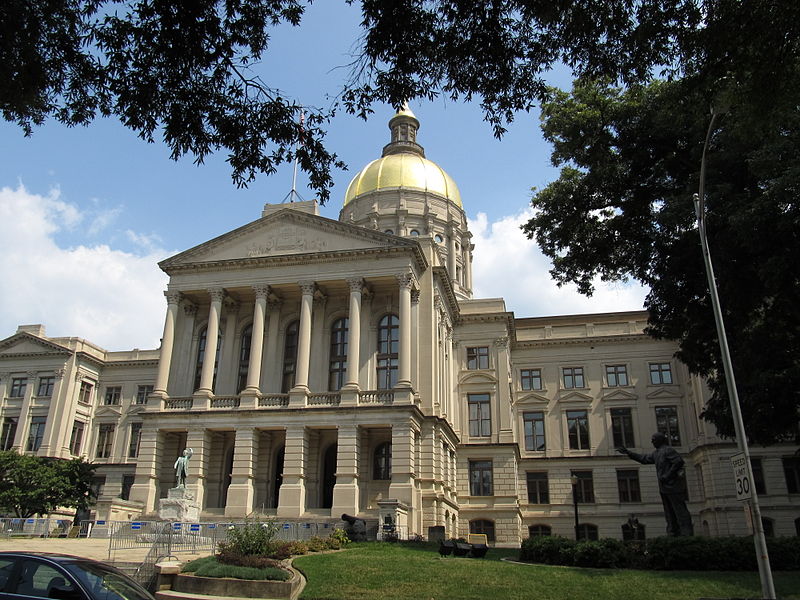
ATLANTA — Lawmakers in Georgia have passed a bill providing legal protection to pastors and other religious organizations who object to same-sex “marriage,” sending the measure to the Republican governor, who has asserted that such proposals are discriminatory unChristian.
As previously reported, legislators recently combined H.B. 757, also known as the Pastor Protection Act, with S.B. 284, the First Amendment Defense Act of Georgia. The Pastor Protection Act unanimously passed the Georgia House, finding support among Democrats and Republicans alike.
“No minister of the gospel or cleric or religious practitioner ordained or authorized to solemnize marriages, perform rites, or administer sacraments according to the usages of the denomination … in violation of his or her right to free exercise of religion under the Constitution of this state or the United States,” it reads in part.
The First Amendment Act of Georgia mandates that “[g]overnment shall not take any discriminatory action against wholly or partially on the basis that such person believes, speaks or acts in accordance with a sincerely-held religious belief or moral conviction that marriage is or should be recognized as the union of one man and one woman or that sexual relations are properly reserved to such a marriage.”
It also states that faith-based non-profit organizations cannot be forced to hire those whose beliefs and behaviors conflict with the entity, and that such organizations have a right to decline to host objectionable events.
Adjustments had been made to the proposal prior to passage, such as the notation that no person should be compelled to attend a same-sex ceremony.
“There’s been a lot of time and a lot of effort from a lot of sources to get this bill where it is today,” sponsor Sen. Greg Kirk, R-Americus, a former Baptist minister, told the Atlanta Constitution-Journal. “The leadership has been shown by the Georgia General Assembly that it leads the nation in dealing with the definition of marriage.”
But according to reports, over 300 U.S. corporations and small businesses have signed on to a petition in opposition of the bill. Microsoft, Google, Delta Airlines, Coca-Cola and Home Depot are all against the bill as they claim that it will have an adverse affect on the economy.
Atlanta Mayor Kasim Reed, a professing Christian known for the firing of fire chief Kelvin Cochran over his book listing homosexuality among other sexual behaviors considered perverse in God’s law, has likewise expressed his opposition.
“I can’t express the amount of damage that is being done to Atlanta and Georgia’s reputation as the business center and cultural center of the Southeast,” he told reporters. “I’m not going to pretend that this bill or the amendments to the bill will mitigate the terrible harm that is being done to our city, our region, our state by this legislation.”
The bill now heads to the desk of Gov. Nathan Deal, who is expected to face pressure to veto the measure. Deal, who identifies as Southern Baptist and attends First Baptist Church of Gainesville, has suggested that religious freedom bills may be unChristian because of his perception that they permit discrimination.
“I think what the New Testament teaches us is that Jesus reached out to those who were considered the outcasts, the ones that did not conform to the religious societies’ view of the world and said to those of belief, ‘This is what I want you to do,’” he said at a ribbon cutting ceremony earlier this month. “We do not have a belief—in my way of looking at religion—that says we have to discriminate against anybody. If you were to apply those standards to the teaching of Jesus, I don’t think they fit.”
“I hope that we can all just take a deep breath, recognize that the world is changing around us, and recognize that it is important that we protect fundamental religious beliefs,” Deal continued. “But we don’t have to discriminate against other people in order to do that.”
But not everyone sees the bill as being discriminatory.
“The First Amendment and the free exercise of religious beliefs is an essential part of our democracy. It deserves the utmost respect and protection,” said Lieutenant Gov. Casey Cagle. “This legislation does just that and protects these freedoms.”
Become a Christian News Network Supporter...


